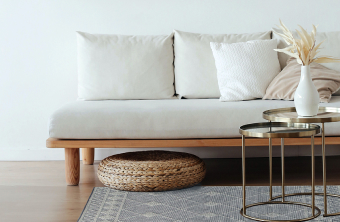

In a world filled with distractions and excess, the concept of minimalist living offers a refreshing approach to simplifying our lives and decluttering our spaces. By focusing on what truly matters and eliminating the unnecessary, minimalist living allows us to create more space, time, and freedom for the things that bring us joy and fulfillment. In this blog post, we’ll explore the principles of minimalist living, share practical tips for decluttering your space, and offer insights on how to embrace simplicity in all aspects of life.
At its core, minimalism is about intentionally focusing on the essentials and removing anything that distracts us from leading a meaningful and purposeful life. It’s not about deprivation or austerity but rather about prioritizing what adds value and letting go of what doesn’t. Minimalism encourages us to question consumerism, live more mindfully, and cultivate gratitude for the things we have rather than constantly seeking more.
The first step in embracing minimalist living is decluttering your physical space. Start by going through your belongings and asking yourself whether each item serves a purpose or brings you joy. Marie Kondo’s famous KonMari method advocates keeping only those items that “spark joy” and discarding the rest. Be ruthless in your decluttering process, and don’t be afraid to let go of things that no longer serve you.
A minimalist wardrobe is characterized by quality over quantity, versatility, and timeless pieces that can be mixed and matched effortlessly. Consider adopting a capsule wardrobe approach, where you curate a small collection of essential clothing items that you love and wear regularly. Donate or sell clothing that no longer fits or aligns with your personal style, and invest in pieces that you truly cherish and will stand the test of time.


Minimalism extends beyond physical possessions to other areas of life, including finances. Take a minimalist approach to your finances by simplifying your budget, cutting unnecessary expenses, and prioritizing spending on experiences rather than material possessions. Embrace frugality and mindful consumption, and focus on saving and investing in things that align with your values and long-term goals.
Central to minimalist living is the practice of mindfulness and gratitude. Take time each day to appreciate the simple pleasures in life, whether it’s a cup of tea, a walk in nature, or a moment of quiet reflection. Practice gratitude for the things you have rather than dwelling on what you lack, and cultivate a mindset of abundance and contentment.
In today’s digital age, minimalism extends to our digital lives as well. Take stock of your digital devices, apps, and online subscriptions, and declutter them just as you would your physical space. Unsubscribe from unnecessary emails, declutter your digital files and photos, and limit your screen time to focus on activities that nourish your mind, body, and soul.
The latest trends in artificial intelligence and machine learning are pushing the boundaries of what’s possible and reshaping our world in profound ways. From advancements in natural language processing and explainable AI to the integration of AI with edge computing and IoT, the future of AI holds immense promise for innovation, transformation, and societal impact. As we navigate this exciting frontier of technological advancement, it’s essential to remain mindful of the ethical implications and strive for responsible AI practices that benefit humanity as a whole. With continued innovation and collaboration, we can harness the power of AI to address some of the most pressing challenges facing our world and unlock new opportunities for progress and prosperity.